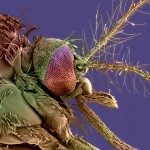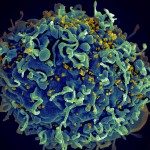Dr Chun-Hong Chen
National Health Research Institute (NHRI)
Taipei, Taiwan
Creating an insect synthetic population to fight dengue fever
Abstract :
Introduction: The worldwide annual incidence of dengue has been estimated by the WHO to be 50 million cases. Compared with other vector-borne diseases, only malaria (which causes over one million deaths annually) has an incidence higher than that of dengue infection. During the past decade, many researchers have focused on the development of transgenic mosquitoes for alternative vector control strategies aimed at either reducing mosquito abundance or preventing the transmission of pathogens. Transgenic methodologies have created new opportunities to prevent infectious diseases through the manipulation of the genomes of insect vector populations.
Methods : By integrating anti-pathogen effector genes in the genome of Aedes aegypti, the principal vector of dengue worldwide, we have developed strains of transgenic mosquitoes in which the replication of DENV-1, -2, -3, and -4 is prevented through an RNA interference-based mechanism. We will further optimize the anti-pathogen effector genes to target genomic sequences in these DENV serotypes and the chikungunya virus (CHIKV).
Results/Conclusion: The overall goal of our research is to prevent dengue and chikungunya fever through the replacement of wild, disease-susceptible mosquito populations with genetically engineered, disease-refractory mosquitoes. An important step toward the implementation of our population-replacement strategy has been the pioneering development and adaptation of the Medea selfish genetic element, which drives the inheritance of the anti-pathogen gene, sustaining a frequency of the disease-refractory phenotype of 100% in the replacement mosquito population. The outcome of our proposed research will reduce the threat of vector-borne diseases in threatened countries worldwide, and positively impact public health on a global scale.
Mardi 20 septembre 2016 à 11h00
Auditorium Centre François Jacob
Invited by : Anna-Bella Failloux (anna-bella.failloux@pasteur.fr) and Pei-Shi Yen (pei-shi.yen@pasteur.fr )
Institut Pasteur – 25, 28, rue du Dr. Roux – 75724 PARIS CEDEX 15



